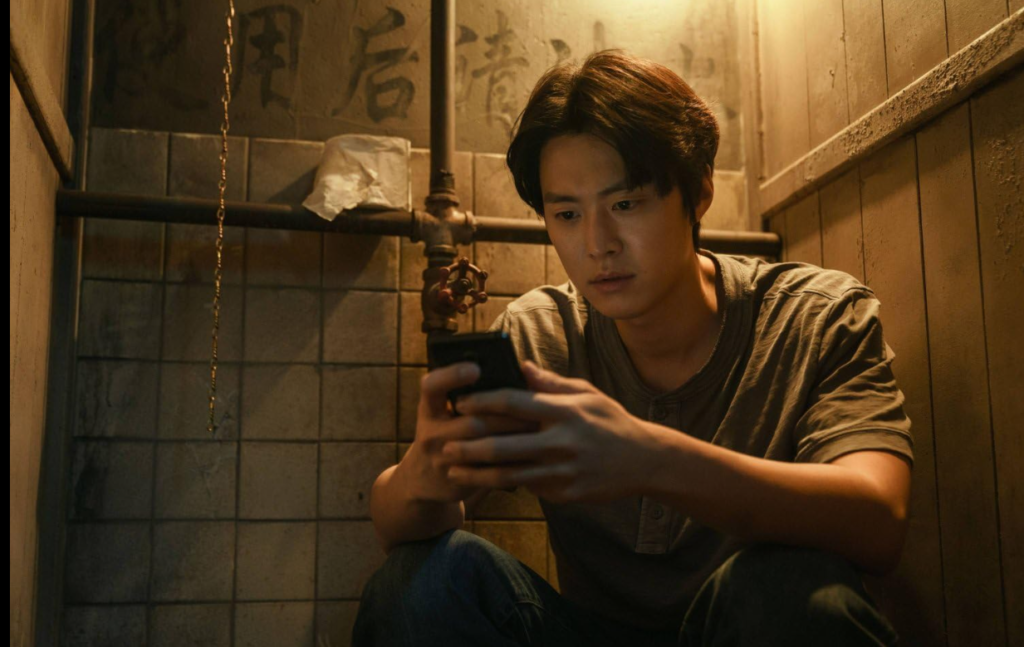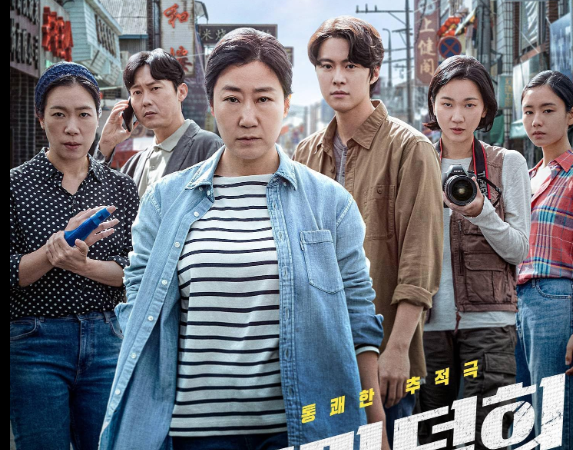In the ever-evolving landscape of South Korean cinema, Citizen of a Kind (2025) stands out as a deeply introspective and socially relevant film. Directed by the visionary Lee Joon-ki, the film tackles powerful themes surrounding identity, social conformity, and personal evolution. Through the lens of a compelling narrative and complex characters, Citizen of a Kind delves into what it means to be an individual in a society that often prioritizes collective expectations over personal freedom.
This film blends thought-provoking social commentary with a gripping, emotional storyline, offering a poignant reflection on the struggles of self-discovery and the fight against societal pressures. With its subtle yet impactful portrayal of modern life, Citizen of a Kind resonates with global audiences, sparking meaningful discussions on the nature of identity and the desire to stand out in a world that often values conformity.

What is Citizen of a Kind About?
Citizen of a Kind tells the story of Min-seok (played by Ryu Jun-yeol), a middle-aged office worker living in Seoul, who begins to feel disconnected from the monotonous life he leads. With little to show for years of hard work, he feels trapped in a system that constantly demands more but offers little in return. The film opens with Min-seok’s daily routine: a series of repetitive actions that highlight the soul-crushing monotony of his existence. From commuting to a faceless office job to engaging in shallow interactions with family and friends, Min-seok feels like just another cog in the machine of modern society.
His life takes an unexpected turn when, after a series of personal and professional setbacks, he meets an enigmatic stranger named Hae-jin (played by Jeon Yeo-bin). Hae-jin, a free-spirited artist who has rejected conventional life in favor of following her passions, challenges Min-seok’s worldview and introduces him to a different way of living. Her boldness, authenticity, and refusal to conform spark something in Min-seok, setting him on a path of self-exploration and change.
As Min-seok starts questioning the meaning of his existence, he finds himself at odds with the expectations of those around him—his family, his coworkers, and even his friends—who are all part of a system that values societal success over individual happiness. Throughout the film, Min-seok grapples with the tension between fitting into societal norms and pursuing the life he feels he was meant to lead.
Themes of Identity and Conformity
At its core, Citizen of a Kind is a meditation on identity. Min-seok’s journey is an exploration of self-discovery, as he strives to break free from the role society has assigned him and create a life that feels truly his own. The film delves into the existential crisis many individuals face when they realize they have spent years living according to the expectations of others, rather than their own desires and dreams.
The societal pressure to conform is another key theme explored in the film. South Korean society, like many others, often emphasizes group harmony, career success, and outward appearances over personal fulfillment. The idea of “fitting in” becomes a significant source of stress for Min-seok, and his interactions with his family and colleagues illustrate how the societal desire for conformity can stifle creativity, individuality, and happiness.
Hae-jin, the film’s secondary protagonist, embodies a stark contrast to Min-seok’s previous life. She represents a rejection of societal norms, a refusal to follow a preordained path. Her boldness, however, isn’t presented as an easy or flawless choice. The film does not idealize Hae-jin’s lifestyle but instead portrays her as someone who has made a conscious decision to live authentically, despite the societal judgment and personal sacrifices it may bring. Through Hae-jin, the film invites the audience to question the cost of following one’s true calling and whether such a life is sustainable in a world that values predictability and success.
The Struggle for Personal Growth
A central element of Citizen of a Kind is the theme of personal growth. Min-seok’s transformation over the course of the film is not instantaneous. It is a slow, painful, and often frustrating process that requires him to confront his own fears, insecurities, and limitations. The film does an excellent job of showing the emotional complexity of personal growth. There are no easy answers, no quick fixes, and no simple solutions to the challenges Min-seok faces.
One of the most moving aspects of the film is how Min-seok’s journey is not only about changing his life but also about reconciling with his past. As he begins to embrace his true self, he must confront the choices he made that led him down a path of dissatisfaction and regret. The film uses flashbacks to give the audience insight into his earlier years, showing how the weight of societal expectations gradually crushed his spirit. This adds layers to his character and makes his eventual journey toward self-actualization even more poignant.
Throughout his transformation, Min-seok’s relationships with others evolve. His family, initially concerned with his perceived failures, begins to understand his desire for change. At the same time, his growing friendship (and potential romantic interest) with Hae-jin challenges him to rethink his values and ambitions. The way these relationships shift throughout the film serves as a powerful reminder that personal growth is rarely an individual pursuit—it often involves re-examining and rebuilding connections with others.
Cinematic Style and Direction
Lee Joon-ki’s direction in Citizen of a Kind is both sensitive and striking. The film uses minimalist cinematography to reflect the emotional emptiness of Min-seok’s life at the beginning. The muted color palette and still shots in the early scenes mirror his sense of inertia and detachment from the world around him.
As Min-seok’s character evolves, the cinematography shifts, incorporating warmer tones and more dynamic shots to reflect his internal awakening. The film’s pacing, too, mirrors Min-seok’s growth—gradual, thoughtful, and filled with moments of introspection. The dialogues are sharp yet reflective, with long silences that allow the characters’ emotions to breathe and the weight of their decisions to sink in.
Universal Appeal and Impact
Although Citizen of a Kind is rooted in South Korean culture, its themes of identity, personal growth, and societal pressure are universal. The film taps into the collective human experience of questioning one’s place in the world and the desire to break free from expectations to lead a more meaningful life. These themes resonate with audiences from various backgrounds, making the film a timely and relevant story for people of all walks of life.
In a world where individuals often feel lost in the face of external pressures, Citizen of a Kind provides a cinematic space to reflect on the choices we make and the lives we wish to lead. It serves as a powerful reminder that the pursuit of authenticity and happiness is worth the struggle, even if it requires breaking free from the mold that society has set.
Conclusion
Citizen of a Kind is a masterfully crafted film that offers both an emotional and intellectual journey. Its exploration of identity, societal expectations, and personal growth makes it one of the standout films of 2025. Through the complex character of Min-seok and his quest for authenticity, the film raises questions that are both universal and deeply personal. Lee Joon-ki’s direction and the outstanding performances from the cast create a thought-provoking and visually captivating experience that will stay with audiences long after the credits roll.

